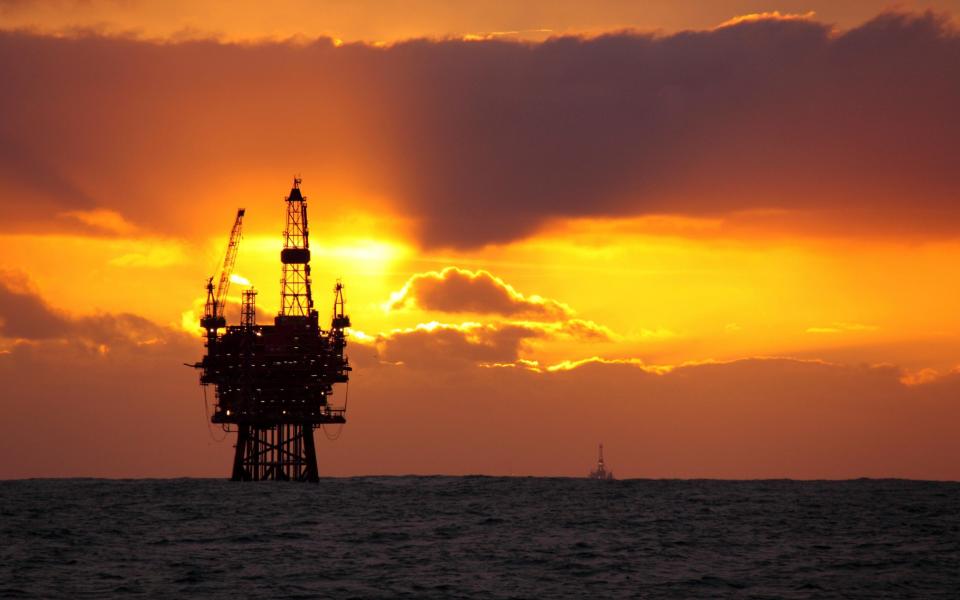North Sea operator blames windfall tax as it axes 350 jobs

Britain’s biggest oil and gas producer has confirmed plans to axe one fifth of its workforce, blaming Jeremy Hunt’s windfall tax for deterring investment.
Harbour Energy said it planned to cut 350 jobs following a review of its business.
The Edinburgh-based company pointed to the expanded energy profits levy imposed by Mr Hunt, the Chancellor, which it said had squeezed cash flows and put off financial backers.
News of the job cuts came just hours after fellow North Sea producer Enquest said its Kraken field would face “natural decline” after the levy prompted bosses to delay further drilling.
Harbour has been one of the biggest critics of the decision by Mr Hunt and Prime Minister Rishi Sunak to increase the tax rate on UK oil and gas companies to 75pc from January 1. The levy was as low as 40pc last year before being increased.
Cash from the tax, which received cross-party support in Westminster, has been used to help households struggling with soaring energy bills because of higher wholesale oil and gas prices.
But critics have repeatedly warned it will damage investment in the North Sea, with oil companies particularly unhappy there is no “floor” – a set oil price at which the tax stops applying – even as prices return to levels they were at before the Ukraine war.
The lifetime of the energy profits levy, or windfall tax, was extended by Mr Hunt from 2025 to 2028 in November’s autumn statement.
On Wednesday the Aberdeen and Grampian Chamber of Commerce, which represents many oil and gas companies, said workers in Scotland were “paying the price” for the Chancellor’s “gamble”.
Ryan Crighton, the chamber’s policy director, added: “Our thoughts are with the 350 people who will be out of work because their industry has been used as a political football.
“Despite repeated warnings about the damage a windfall tax would cause, the UK Government, cheered on by the opposition, chose to take a gamble on the North Sea.
“The Chancellor must wake-up and recognise the corrosive impact the windfall tax has had on jobs and investment.”
Harbour said: “We are very conscious of the impact of this news on our people."
The levy cost Harbour about $326m in 2022 but the company also booked a further $1.5bn, reflecting expectations of what it could pay in future.
In an annual report published at the end of March, chief executive Linda Cook blamed the tax for “all but extinguishing” a $2.5bn pre-tax profit the company made last year off the back of booming oil and gas prices.
Ms Cook wrote: “The energy profits levy reduces our cash flow, makes it harder to attract investors, and impacts the availability of debt.”
Enquest has also blamed the levy for delays to further drilling at its top-producing site in the North Sea.
The Kraken field produced roughly 18,000 barrels of oil equivalent per day last year, taking its lifetime production rate to more than 60 million barrels since 2017.
Enqest said it would hold back on further drilling in 2023, pushing an investment decision back until 2024 at the earliest. The delay means the field will suffer from “natural decline”.
Amjad Bseisu, Enquest’s chief executive, said the levy had changed the economics of investment, with the higher tax rate meaning fields needed to contain larger reserves of oil to be profitable.
He said: “With no energy profits levy, that would have been economic. But we probably need a third more volumes to make it economic now because we have the burden of a third of the cash flow going to the levy.”
A Treasury spokesman said: “The Energy Profits Levy strikes a balance between funding cost of living support from excess profits while encouraging investment in order to bolster the UK’s energy security.
“We have been clear that we want to encourage reinvestment of the sector’s profits to support the economy, jobs, and our energy security, which is why the more investment a firm makes into the UK, the less tax they will pay.”
Harbour’s decision to cut jobs was announced two days after chief executive Linda Cook and finance chief Alexander Krane were awarded £2.5m and £1.4m respectively in performance-linked shares.
Ms Cook was paid £3.1m in 2022, and her benefits include two return flights to her home in the US per year, while Mr Krane received £1.5m.

 Yahoo Finance
Yahoo Finance 